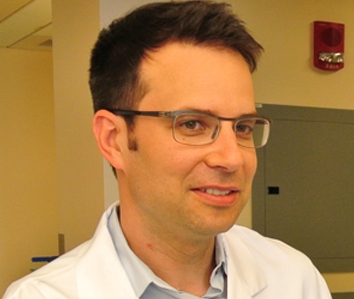
"Cellular Reservoirs for HIV-1 Long-term Persistence Despite Antiretroviral Therapy," will be presented by Mathias Lichterfeld at 4 p.m., Feb. 11 in E103 Beadle Center. The seminar is free and open to the public.
Lichterfeld has appointments in the Massachusetts General Hospital, Harvard Medical School and The Ragon Institute.
Current antiretroviral combination therapy is effective in suppressing HIV-1 viremia, but replication-competent HIV-1 can persist for extremely long-periods of time despite effective treatment with HAART. Defining the cell types that serve as a reservoir for long-term persistence of HIV-1 is critical for designing interventions that can lead to HIV-1 eradication and cure.
Stem cells represent the most long-lasting human cells and are maintained by specific molecular programs that induce self-renewal, homeostatic proliferation and resistance against apoptotic cell death. Such stem cell mechanisms are also active in selected subsets of CD4 T lymphocytes, such as Th17 cells or the recently described population of CD4 T memory stem cells. Our data suggest that CD4 T cells with such stem cell like properties have high susceptibilities to HIV-1, and harbor high levels of HIV-1 DNA in HIV-1 infected patients treated with suppressive ART.
In addition, we show that HIV-1 DNA levels in these cells remain stable for many of antiretroviral therapy, and that the relative contribution of these cells to the total viral reservoir increases over time. As such, CD4 T cells with stem cell like properties may represent a long-lasting reservoir for HIV-1 that has a similar function for maintaining HIV-1 persistence as cancer stem cells have for perpetuating certain oncologic diseases.
The increasing understanding of how stem cell–like properties of cellular immune memory support HIV-1 persistence despite ART may be translatable into improved clinical strategies for inducing HIV-1 eradication.
The Beadle Center is located at 1901 Vine Street. The complete schedule of seminars may be found at http://biotech.unl.edu/.
More details at: http://go.unl.edu/u79i